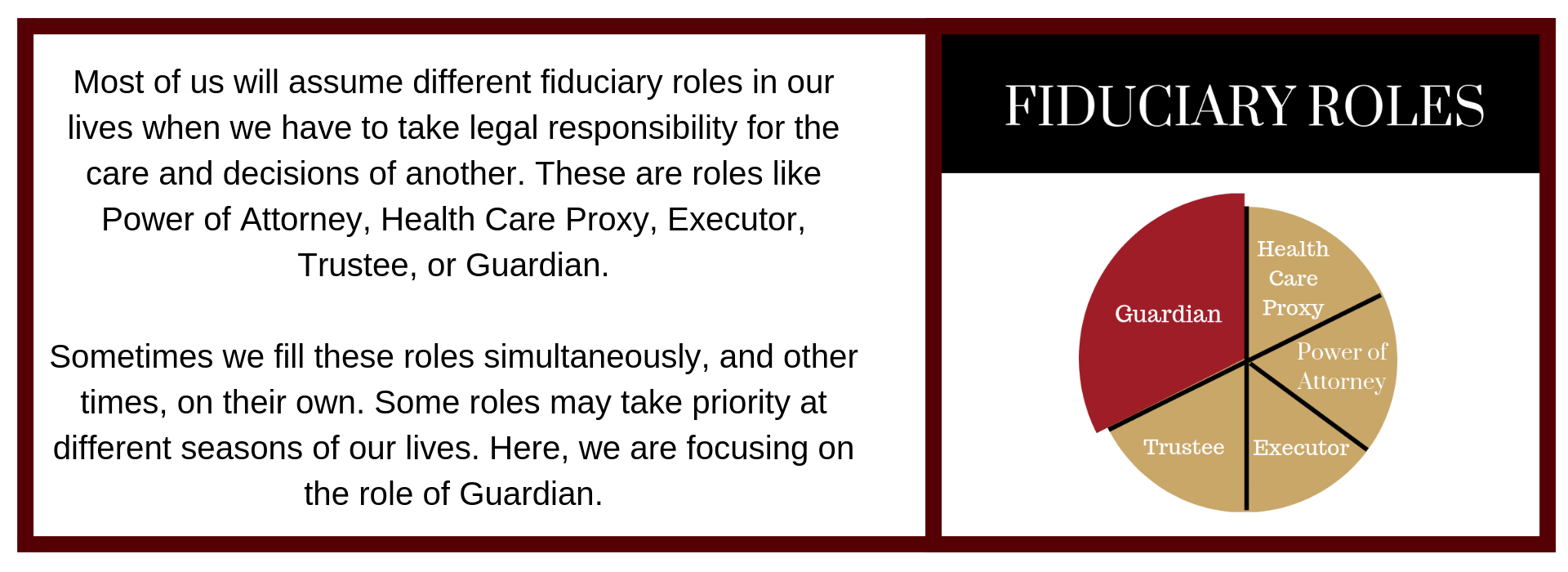You’re a Guardian. Now What?
When someone lacks, or loses, the ability to make medical decisions for themselves, and they did not sign a healthcare proxy before they lost that ability, a guardianship will be necessary. A guardian is appointed by the probateProbate can refer to the process of settling the estate of a deceased person. Read More court and is able to make medical decisions on behalf of an incapacitated person. This may be a person who has been in an accident or had an unexpected change in their mental or physical health. We also see cases where an incapacitated child turns 18; they are unable to sign a health care proxy because they lack the ability, but their parent is no longer able to make health care decisions on their behalf without a court appointing them guardian.

What is the process of being appointed guardian?
The first step is to file the guardianship pleadings with the county probateProbate can refer to the process of settling the estate of a deceased person. Read More court where the incapacitated person lives. This will involve filing a medical certificate, completed by a health care professional treating the incapacitated person, also known as the “ward,” describing their incapacity and their inability to care for themselves or make their own healthcare decisions. It is a slow process, typically taking two months, but in the interim, there are special procedures to have a guardian appointed immediately if an emergency exists. There will be a hearing, which if possible, the incapacitated person should be present for.
What is the role of a guardian?
The guardian must be involved in the care of the ward. They are now making healthcare decisions for another person, and the responsibility should not be taken lightly. The care they put into the decisions they are making must be the same care they take when making their own healthcare decisions. Also, every year the guardian must report to the court on their plan to care for the incapacitated individual.
How long is a guardian appointed for?
A temporary guardian is appointed for 90 days by your county’s probateProbate can refer to the process of settling the estate of a deceased person. Read More court. This allows someone to make medical decisions in an emergency while the petition for permanent guardianship works its way through the court. Otherwise guardianship is not a temporary appointment, unless the ward gains the ability to care for themselves and make their own healthcare decisions. If that is not likely, be prepared to be involved for the long haul. Typically once a treatment or care plan is in place, there is not much daily minutiae for the guardian to deal with. However, should you need or want to resign, you will need to ask the court for permission, and they will want a new person to be appointed guardian before you are able to resign.
How can a guardianship be avoided?
In certain situations, such as an incapacitated minor turning 18, it cannot be avoided. But signing health care proxy documents when you have the mental capacity to do so can save the delay and cost associated with a guardianship, which can cost several thousands in attorney fees and court costs. By having a healthcare proxy in place, you are able to choose who you want to make medical decisions on your behalf, and empower them to step in and make those decisions with no court involvement or delay.
To learn what your day, coming months and year might look like once you discover you need to serve as a guardian, read Will’s article, What Is It Like to Serve as a Guardian?
Serving in a different fiduciary capacity? Learn more about assuming the role of health care proxy or power of attorney.





